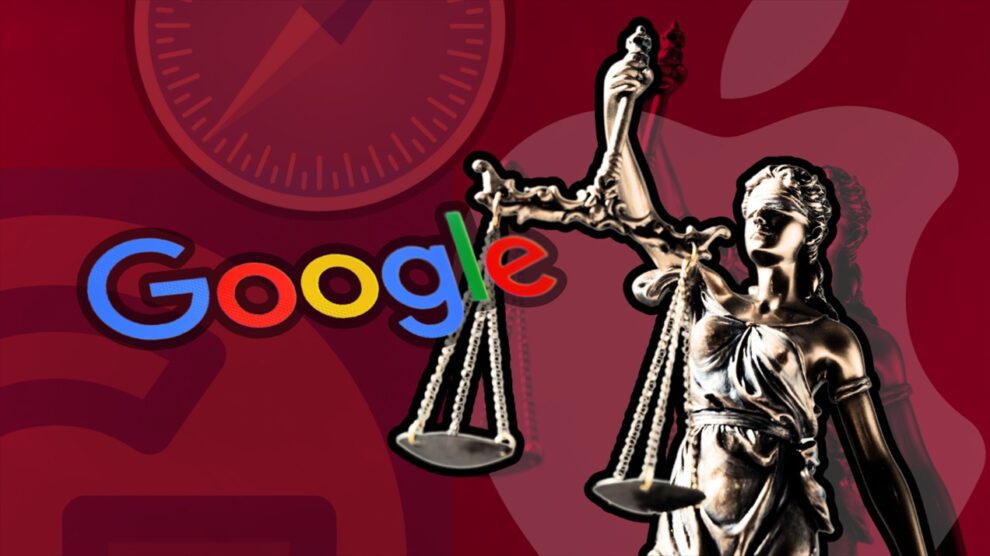The long-standing partnership between Apple and Google, making Google Search the default on Apple’s Safari browser, faces a major challenge due to the ongoing U.S. Department of Justice’s antitrust lawsuit against Google. This billion-dollar deal is a financial powerhouse for both companies, but the lawsuit threatens to disrupt this lucrative arrangement.

Financial Stakes: A Windfall for Both
For Apple, the payments from Google are a significant revenue stream. Estimates suggest Apple earned over $20 billion in 2022, representing a substantial portion (36%) of ad revenue generated from Safari searches. This hefty sum contributes significantly to Apple’s profits.
For Google, the stakes are even higher. Losing access to Safari as the default search engine could impact a staggering 70% of iPhone searches. This translates to a potential major dent in Google’s mobile search advertising revenue, a key contributor to its overall business, generating a massive $207 billion in 2023.
Potential Outcomes: A Reshaped Mobile Search Landscape
The outcome of the lawsuit could have a profound impact on the mobile search landscape. Here are some potential scenarios:
Google Loses:
A court ruling against Google could force them to relinquish their default search engine position on Safari. This would necessitate Apple finding a new search partner, potentially leading to:
- Increased Scrutiny of Other Defaults: The case could set a precedent, prompting regulators to examine similar default app arrangements across the tech industry.
- A More Competitive Search Market: With Google dethroned, other search engines like DuckDuckGo or Bing could gain traction on iPhones, offering users more choice.
Google Prevails:
If Google wins the lawsuit, the status quo might remain, but the legal battle could still have consequences:
- Potential for Future Challenges: Even if victorious, Google might face similar lawsuits or regulations targeting its dominance in search.
- Public Perception: The lawsuit could negatively impact Google’s public image, potentially leading to increased scrutiny of its business practices.
Strategic Maneuvers: Google Seeks Alternatives
Aware of the potential fallout, Google is reportedly taking steps to lessen its dependence on the Apple deal. Their efforts include:
- Promoting Google Apps: Google is intensifying efforts to encourage iPhone users to switch to its own apps, Chrome and Google Search, for their search needs.
- Developing User Loyalty: They are likely focusing on enhancing features and functionalities within their apps to make them more appealing to iPhone users.
Uncertainties and Challenges for Apple
A potential disruption in the Apple-Google deal presents challenges for Apple as well:
- Finding a New Partner: Identifying a suitable alternative search engine partner might prove difficult. It would require negotiations and potentially lower revenue compared to the Google deal.
- Maintaining User Experience: Switching search engine defaults could lead to a less familiar experience for iPhone users, potentially impacting user satisfaction.
A Broader Impact: Repercussions Beyond Apple and Google
The ramifications of the lawsuit could extend beyond these two tech giants:
- Increased Regulatory Scrutiny: The case could pave the way for stricter regulations on default app settings, revenue-sharing agreements, and potential anti-competitive practices within the tech industry.
- A More Balanced Ecosystem: A potential decrease in Google’s dominance could create a more level playing field, allowing smaller search engine providers a chance to compete more effectively.
Conclusion: The Future of Mobile Search Hangs in the Balance
The outcome of the Google Antitrust Lawsuit holds significant weight for the future of mobile search. It could reshape user experience, impact revenue streams for tech giants, and potentially lead to a more regulated and competitive tech landscape. As the case progresses, the industry and users alike wait with bated breath to see how this saga unfolds.










Add Comment